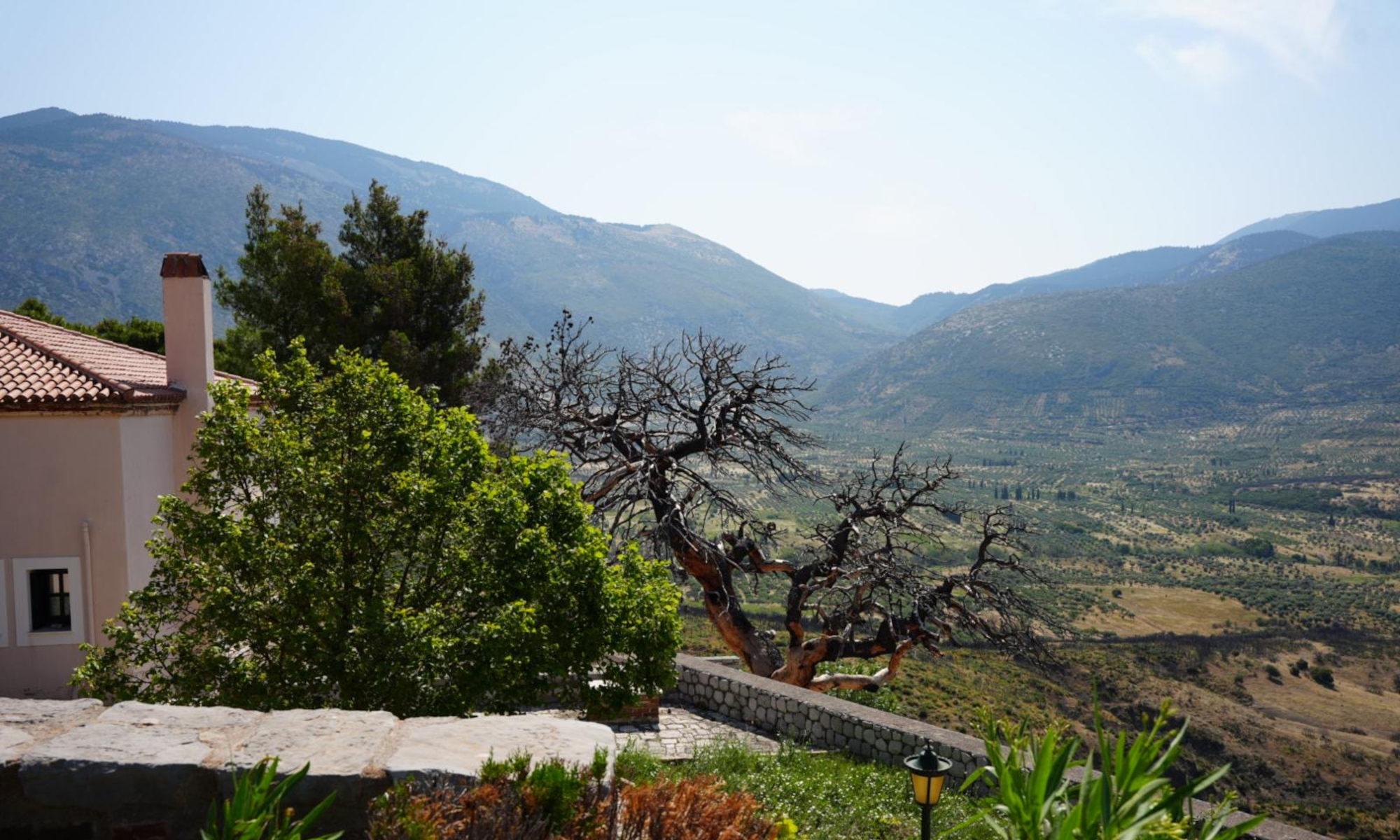For Israelis in Greece, navigating increased political tension is an exercise in understanding nuance, and standing their ground.
In central Athens, a group of two-hundred attendees were sitting at long-tables in the spacious dining hall of Athens Beit Chabad. It was Shabbat at Athens’ Orthodox-Jewish community centre, and, over a three-course Middle-Eastern meal, alongside profusions of wine and grape juice, a heterodox group of Jews – primarily Greek and Israeli, but from other European countries too – were singing traditional Hebrew zemirot and conversing, a cacophony of simultaneous Hebrew, English and Greek voices filling the room. Gabriel Axelrod*, a tourist from Israel, introduced himself as the meal began. A Jerusalem resident, he – alongside his three Israeli friends – had come to Athens for a Green Day concert, andhad wound up at Chabad in search of some good food – and a sense of community.
“We’re not baby killers,” he proclaimed, after introducing himself, to which his friends erupted in laughter. He clarified this was ironic, a not-so-subtle retort to assumptions that Israelis, by virtue of their partaking in mandatory IDF service, are all involved in the killing of innocent civilians of Gaza, which, since October 7th, 2023 has been embroiled in a bitter war with Israel.
Although it’s some 2000 miles away, the war between Israel and Gaza has had a decisive impact on Greece. While short-term travel to Greece has yet to surpass pre-war levels, in large part because of airport closures in Israel following the outbreak of the Iran-Israel war in June, some 10,000 israelis have chosen to relocate from Israel since October 7th, utilizing the “golden visa” program – which permits five-year residency in the E.U. upon a 250,000 property investment. In fact, between August of 2023 and October of 2024, there was a 70% increase in Golden Visa permits for Israelis, jumping from 159 to 271 permits.
For Asi Doron, an Israeli real-estate agent based in Athens, after October 7th, he noticed an increase in calls to his office, with people wishing to either invest or live full or part time in property in Greece. “People wanted a Plan B, another place outside of Israel,” citing a trifecta of proximity, safety and cheap property. On a rooftop café overlooking Syntagma Square, he points out the Athens neighbourhoods he has sold or rented out properties in — Exarchia, Pangrati, and Koukaki, to name a few.
For Doron, he understands that the reason why many Israelis want to move to Greece is also because of the cultural similarities between the two people. “We are like brothers,” he says, highlighting a shared sense of humour and warmth. But, as many Israelis move to Greece, the native population has become steadily more anti-Israel. Between November of 2023, and June of 2025, support for Israel fell 14%, from 34% to 20%. In the streets of Athens, protests for Palestine have garnered thousands of attendees, who have demanded, among other chief demands, an end to the blockade of goods to Gaza by the Israeli government, and criticisms of the ‘pro-Israel politics’ of Greece.
Most unique to Athens however, is the abundance of pro-Palestinian graffiti across the city. Graffiti has long occupied an important role in social movements in Greece, acting as a barometer for public opinion on the most contentious of issues. Following the Greek financial crisis in 2008, graffiti became a popular mode of protest. Murals sprouted up in Exarcheia, the former Anarchist-run neighbourhood, to give image to the government’s policies of financial austerity. Now, the new graffiti is primarily anti-Israeli – “DEATH TO ZIONISTS” / “IDF NOT WELCOME,” – compact declarations usually written in English script, easily understood by passersby.
For Israelis in Athens, this is a complex issue to navigate. When Axelrod came to Athens, as he walked around the city, and saw sign after sign of anti-Israeli messaging, it spawned uncomfortable questions in his head: “Am I safe here? Is someone going to attack me? Should I be scared of speaking in Hebrew?” ”Ultimately, he decided that the best approach — for himself and his friends — was ignorance: “I told them, ‘I don’t want my trip ruined, so let’s ignore it.’”
For the permanent Israeli residents of Athens, however, ignorance is a luxury that they can’t afford. The defamatory graffiti that Axelrod passed by on vacation is the same type that lines the roads of these Israeli’s homes and businesses. For Yair Grossman, head of Mazi Athens, the only community space for Israelis in the city, the graffiti is a point of contention within the community. According to Grossman, “The first year and-a-half after October 7th, they did graffiti… mostly about ‘peace.’ It became really extremist, and the things that we find now on the street are horrendous.” Grossman sends images of particularly violent graffiti to the authorities, for cover-up. One particular example: a sign which read “Kill All Jews.”
Beyond the physical manifestations of anti-Israeli sentiment in Greece, though, within the Israeli community, there’s an internal lack of safety. A contemporary Greek source, for example, refused to give quotes because she believed it could jeopardize her colleagues’ lives if she were quoted. There’s a fear that the very lives of Israelis might be in danger if they choose to speak out in support of Israel. It’s not an unfounded fear: in June, two Israelis were stabbed in central Athens, for the crime of speaking in their native tongue, Hebrew.
There is, however, a general understanding that the more radical anti-Israel voices aren’t representative of the Greek public: “The Greeks, generally speaking, love Israelis as much as we love them in return,” says Grossman. According to him, it’s an “extremist minority” who is spreading the vehemently anti-Israeli sentiment.
For him, the removal of graffiti is important, then, not as an act of resistance against this minority, but because it ensures that “Israeli locals and tourists feel welcomed and not afraid.” It’s part of the reasoning why Grossman is planning on directing an even more concerted group to remove graffitis and posters, which he loosely describes as a ‘league.’
This nuanced understanding underscores the Israeli attitude towards the rising political tension in Greece: even for Axelrod, who was unaccustomed to such violent displays of graffiti against his home country, and people, he wouldn’t write off traveling to Greece again, “if it stays…. bearable.”
In the meantime, as Israelis continue to travel and move to Greece, and the existing community finds its place, the lyrics of the zemirot, Me Shemmamin, provide a powerful mantra for the state of Israeli life in Greece: “He who believes shall not be afraid.”

